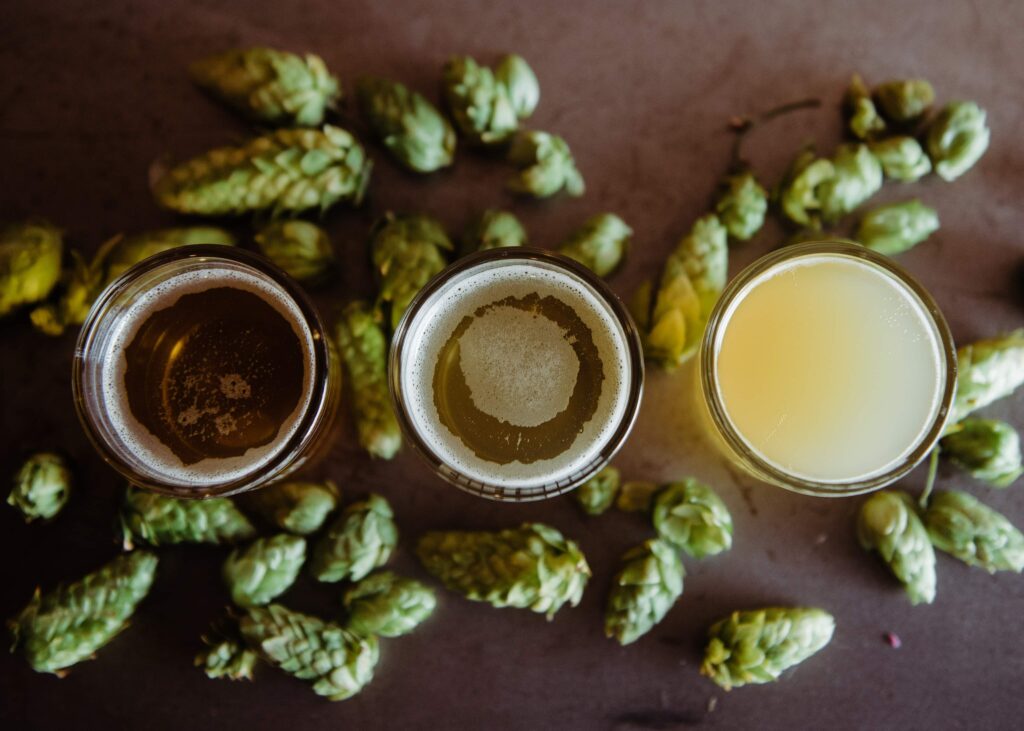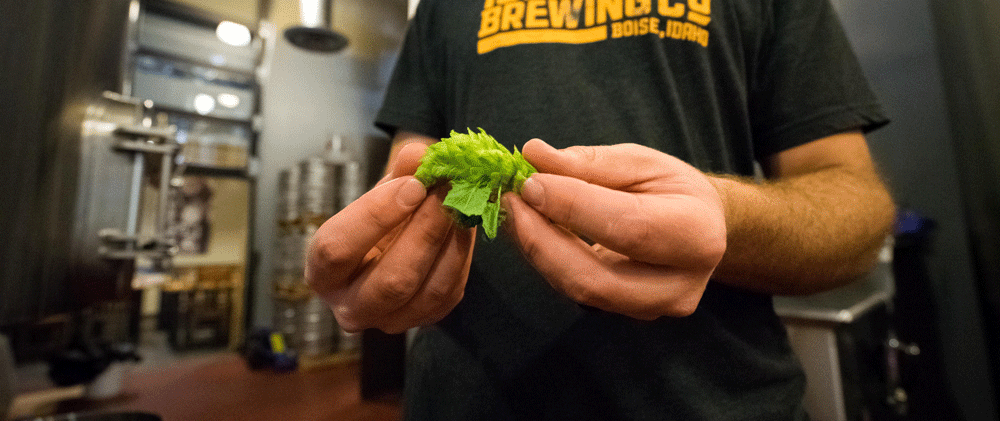What are Hops for in Brewing? How do they affect your beer? Well, a lot actually…

Humulus Lupulus or Hops are used during the brewing process of beer to achieve many positive attributes:
- Bitterness
- Flavour
- Aroma
- Mouthfeel
- Foaming & Lacing
- Anti Microbial – Hops act as a natural preservative
How Hops are used
Generally hops added at the start of the boil are to achieve bitterness, hops in the middle of the boil are for flavour and hops at the end of the boil are for aroma.
Hops cones are the particular part of the plant that brewers want. Specifically, the Lupulin glands contain hard and soft resins, oils and polyphenols.
The Soft Resins contain alpha acids and beta acids, brewers use the alpha acid rating to indicate the level of bitterness. You will hear the term isomerised alpha acids, you see alpha acids only become isomerised as a result of boiling the hops in the wort.
Hop Oils
Hop oils produce the aroma and flavour of the beer. It’s not just about the number of hop oils but about the composition of the hop oils. To be very technical we can use gas chromatography to examine the composition of hop oils.
Hop aroma will change, for example, what we experienced at the 2019 Hop harvest was a very different aroma in the hop field compared to the aroma in the kiln and during the brewing process.
Hop oils aromas and flavours can be categorised into a wide range of sensory spectrums for eg floral, citrus, fruity and woody.
Hop Oils make up 4% of the hop cone, there is a differing range of hydrocarbons from 50-80% and a range of oxygenated hydrocarbons from 20-50% and finally less than 1% sulphur compounds.
- Hydrocarbons are highly volatile, not very soluble and only impact the beer when added late in the boil or as a dry hop.
- Oxygenated hydrocarbons are more soluble and aromatic, these aromas are more likely to show up in a finished beer
- Sulphur compounds albeit in low % of the oils they can influence the aroma
There are 4 prominent Hop oils to be aware of (2-4 are more likely to survive into packaged beer)
- Myrcene – Monoterpene ( Green Herbaceous Resinous Aroma)
- Caryophyllene – Sesquiterpenes
- Humulene – Sesquiterpenes
- Farnesene – Sesquiterpenes

Mixing it up
You also have to be aware of Biotransformations, this is when hop oils interact with the yeast – Geterbrewed have asked the hop merchants that we work with to look at creating some papers researching these biotransformations
Lianlool (a terpene that occurs naturally) is a carrier of hop aroma but actually one of many hundreds of compounds. There is a lot of research ongoing. Currently, it isn’t just as simple as using a hop descriptor to achieve specifics aroma compounds from specific oils
Brewers sometimes add more of a specific hop variety to achieve that desired aroma profile when in fact the solution might be to add a little less to allow that aroma to shine through. A strange comment you may think as Geterbrewed should be wanting to sell more hops but sometimes less is more.
Hop aroma can make you feel relaxed! Yes, it’s a scientific fact!
What is exciting for brewers when using different hop varieties is that when paired with other hops the physical interactions and biotransformations with different yeast strains can create something truly impressive. You know that beer that just blows your mind, those hops that just work in harmony together.
In summary, hops are used to determine the bitterness, flavour and contribute to the aroma of a beer and they play an important role in naturally preserving the beer.